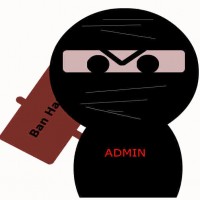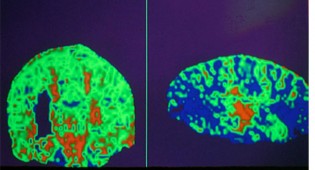French Authorities Automate Anti-Piracy Procedures

YNOT EUROPE – The Hadopi law, also known as High Authority for the Distribution of Works and the Protection of Rights on the Internet or Act No. 2009-669, promotes the dissemination and protection of creative material on the internet.
This is a French law that aims to put an end to file-shares when the shares are in breach of copyright law.
Adopted June 12, 2009, the Hadopi law is defined in Articles L.331-12 et seq of the Code of Intellectual Property. It has three missions:
- Encourage the development of legal content provision methods and monitor the use of legal and illegal works on the internet.
- Protect original, copyrighted works against infringement online.
- Regulate the use of technological protection measures and information.
Repeated violations of Hadopi provisions ultimately will result in denial of internet access.
The enforcement procedure is simple: Copyright owners send internet protocol addresses to the High Authority for transmission to internet service providers, who are required to identify the users of those IP addresses, without judicial oversight.
Internet pirates are unmasked, and then copyright owners may take legal action.
However, since enactment of the law, legislators have become to consider what they call “flexible response” in order to prevent condemnation of the innocent through accident or subterfuge. Currently under consideration is a two-step preventive procedure, possibly followed by a final punitive step.
First, the offender receives an email notification, then a warning letter by postal mail. If the offending behavior continues, the user’s internet access will be suspended. There remain problems even with this approach, however, as it is the register holder of the IP address who would receive the mailings, and someone else in his household may be the unauthorized downloader or uploader.
On April 5, at an anti-piracy conference organized by the Union of Manufacturers (UNIFAB), Vivendi Group Institutional Affairs Director Sylvie Forbin revealed the number of IP identification requests Vivendi sends each day, by ISP:
- Orange: 3,000 applications
- SFR: 1,800 applications
- Free: 1,500 applications
- Bouygues: 300 applications
Vivendi, long at the center of the piracy battle, operates a number of interactive platforms and networks. The group brings together one of the world’s most popular video games (Activision Blizzard), the multinational music rights owner Universal Music Group, a leading French alternative telecom (SFR), the major Moroccan telecom (Morocco Telecom Group), the leading Brazilian telecom alternative (GVT) and a leading French pay-TV (Canal + Group).
“ISPs continue to reveal more and more identities, so warning messages can be sent,” Forbin said
However, she indicated, to advance the pace of identifying pirates, the development of a standardized platform is essential.
“To do this, ISPs will have to move to more automation, with a dedicated platform for this type of mission,” she said. “ISPs are currently in talks with authorities to see how this platform can be implemented under the best conditions.”
Mary Frances Marsh, president of the Hadopi enforcement group, said the group expects to issue 10,000 warnings daily through the first half of 2011. That figure is expected to increase by 2,000 percent by the end of the year, to 200,000 daily warnings, once a computer system upgrade scheduled to begin March 17 is completed.
Comments are closed.





